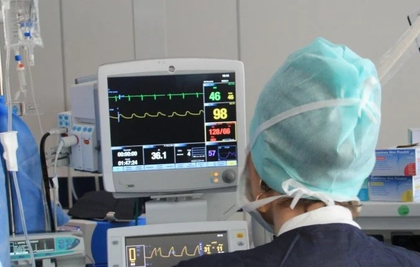Medical association urges balanced approach for GST rejig on devices
By IANS | Updated: August 26, 2025 18:25 IST2025-08-26T18:23:03+5:302025-08-26T18:25:18+5:30
New Delhi, Aug 26 The Association of Indian Medical Device Industry (AiMeD) on Tuesday urged for a balanced ...

Medical association urges balanced approach for GST rejig on devices
New Delhi, Aug 26 The Association of Indian Medical Device Industry (AiMeD) on Tuesday urged for a balanced approach on the impending Goods and Services Tax (GST) rejig on medical devices.
AiMeD said that if not carefully managed, changing GST rates for medical devices could impact domestic competitiveness.
Most devices now have a 12 per cent GST, while inputs are taxed at 18 per cent, causing an inverted duty structure and margin pressures. AiMeD noted that proposed GST changes -- to either 5 per cent or 18 per cent -- both present significant risks requiring carefully nuanced consideration.
“For equipment, electronics, reagents, and implants, reducing GST to 5 per cent would enhance affordability and market reach. However, applying a 5 per cent rate to low-margin consumables like syringes, catheters and IV sets would worsen the inverted duty structure, increasing costs for Indian manufacturers and making imports cheaper,” argued Rajiv Nath, Forum Coordinator, AiMeD.
“Retaining 12 per cent GST for most consumables while allowing 5 per cent for high-value equipment is the most balanced approach,” he suggested.
AiMeD recommends streamlining GST refunds and allowing refunds on input services and capital goods to ease cash flow.
“Raising GST to 18 per cent would increase medical device costs for hospitals and households, while a flat 5 per cent GST without refund reforms may create supply risks by discouraging local production. A calibrated structure is therefore essential to ensure both affordability for consumers and sustainability for Indian manufacturers,” Nath said.
AiMeD also proposed raising the health cess on imports from 5 per cent to 10 per cent, with revenues directed to Ayushman Bharat, to offset the price advantage of cheaper imports.
“With Indian manufacturers already facing about 15 per cent cost disability against imports from China and ASEAN countries, GST policy must support Make in India, not disadvantage it,” Nath said.
“A calibrated GST structure can simultaneously promote affordability for patients, protect consumer interests, strengthen domestic manufacturing, and align with the government’s vision of Atmanirbhar Bharat,” he added.
Disclaimer: This post has been auto-published from an agency feed without any modifications to the text and has not been reviewed by an editor
Open in app